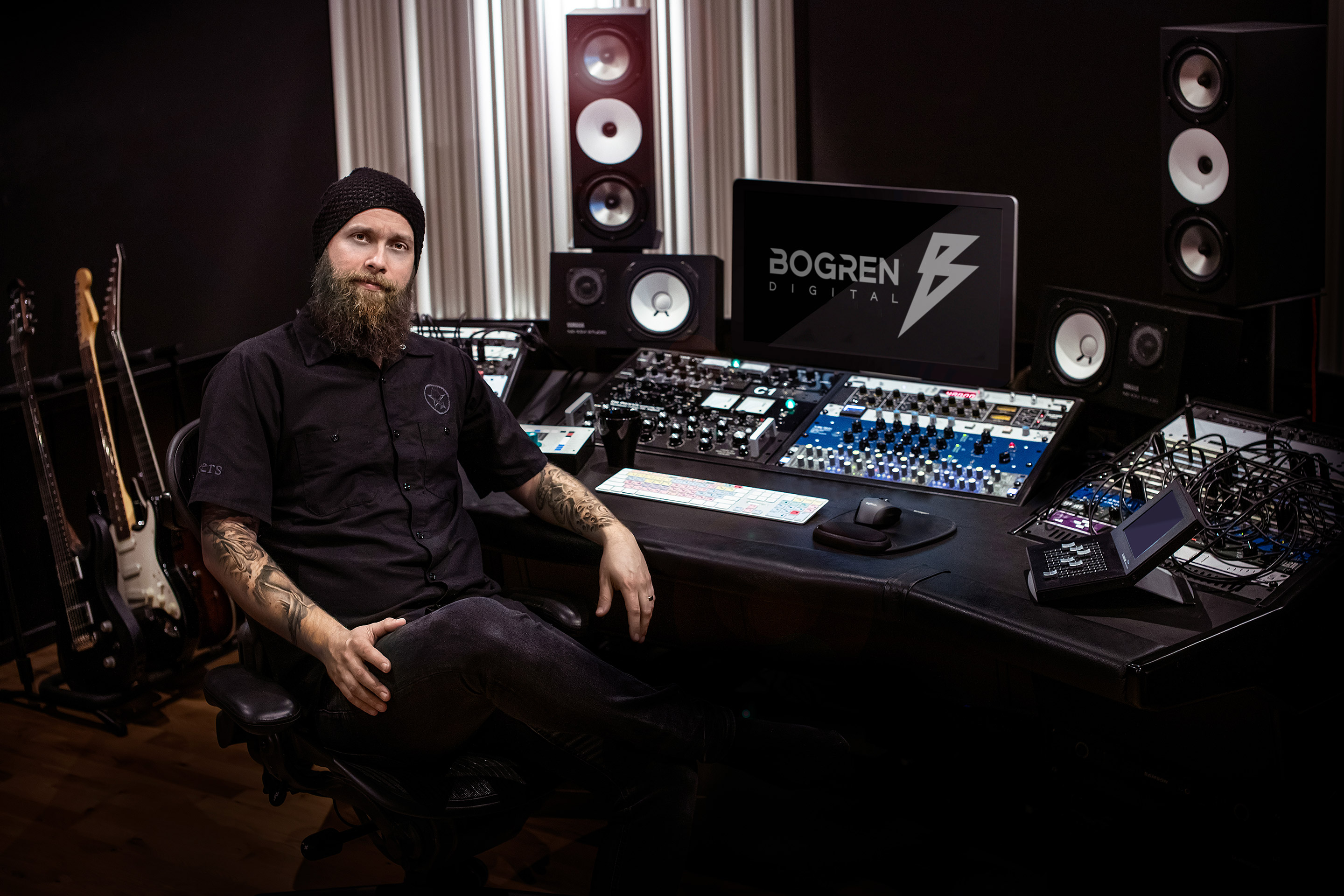- hot!
- sale
- top rated

"The IRDX function is game-changer and in the quest for ironing out the differences between "Real-Amping" and Software Amp/Cab/Miking Up solutions!"Dan Swanö. Producer, musician (Opeth | Bloodbath | Katatonia, | Aeon | Edge of Sanity)

"I generally despise the sound of IRs compared to using a real setup, but IRDX adds in the physicality and depth of a real speaker in action and makes it way more interesting and usable. I just love this thing after 10 seconds of using it."Thomas "Plec" Johansson. Producer (Mayhem | Watain | Soilwork | Transatlantic)

"Beautiful capture of a beautiful amp with the punchiest mids I’ve ever mixed. Plus, the IRDX feature really breathes some life into the guitars when needed. Couldn’t be happier!"Jakob Herrmann. Producer (Amaranthe | Evergrey | Draconian | Vildhjarta | Vola)

Breathe life into your guitar amp sims and cabinet impulse responses. Simply add IRDX Core after your guitar amp or IR loader plugin and discover the natural movement, the 3D sensation, the slightly jagged edges, and the unpredictability you could previously only obtain by recording an actual guitar cabinet at high volumes with a microphone.
This Is Not An IR Loader
IRDX Core is a unique plugin. It does not load impulse responses but instead can be placed after any amp sim or IR loader to add natural sounding speaker dynamics. The kind you can only get by blasting a big speaker cabinet at incredibly high volume.
What’s Wrong With Impulse Responses?
Well-made IRs are vital to obtaining a great guitar amp sound on the computer.
However all IRs have a significant limitation: they can only capture a static, linear image of the tone curve and resonances of the cabinet. Like a photograph, if you will.
On the other hand, real-life guitar speakers are living, moving things that respond dynamically to the input signal being fed into them.
Speakers are non-linear, and it’s those non-linearities that IRDX faithfully emulates and adds to your amp sim or IR loader.
How Do I Use IRDX Core?
In any major DAW, launch the IRDX Core plugin on an insert slot that immediately follows an IR loader plugin or a guitar amp simulation that includes a model of a speaker cab.
You can use IRDX Core to enhance any such plugin — except for the Bogren Digital ones! That’s because all our amp sim plugins already have the IRDX technology built into them, so there’s no need to add IRDX Core after those.
Any other brand’s IR loader or guitar amp plugin will sound better if it’s followed by IRDX Core.
Input Calibration
In most cases, no adjustments are necessary in the IRDX Core plugin.
If you want to ensure IRDX Core responds in the most natural way, you can use automatic input calibration that will listen to your guitar signal and ensure you get a healthy input level.

Pick A Style
IRDX Core comes with two distinct modes - "Normal" and "Intense".
"Normal" mode offers subtle, natural speaker movement, compression, and distortion.
The "Intense" mode offers a slightly different flavor and makes these effects more noticeable. Have a listen and pick one that fits your music the best.
The IRDX Difference
Like tape saturation, the IRDX effect may seem subtle at first. But going back and forth between enabling and bypassing it, here’s what you’ll notice:
- With IRDX Core disabled, every stroke on the guitar sounds similar, and the guitar seems somewhat two-dimensional and lifeless.
- With IRDX activated, differences between the individual strokes are more discernible, the sound wakes up, and you get all the changes over time that are so important to keep the listeners’ attention.
- Using IRDX Core in a mixing situation adds width, movement, and excitement to guitar tracks. It also helps guitars sit better with the other instruments.
- With IRDX Core activated, the guitar sound reacts more realistically to your playing when you play through an amp sim in real time.
The Future Of Speaker Modeling
IRDX (Impulse Response Dynamix) technology breathes life into the guitar sound by adding dynamic and true-to-life speaker behavior to static impulse responses.
IRDX technology, developed by producer Jens Bogren, uses advanced machine learning methods to reconstruct the difference between a real cab and an impulse response.
The end result is a guitar amp sim that reacts like a real amp, easily fits in a mix without sounding stale, and feels great when playing through.
Impulse Responses are excellent at capturing the tonality and resonance of a guitar cabinet, but by nature they are only a static snapshot in time.
By itself, an impulse response has the tonal characteristics of a real cab but without dynamics, it creates a lifeless, fatiguing sound.
Real-life guitar speakers react dynamically to the input from the amplifier. They move air, compress, and break up depending on how hard they are being pushed by the amp.
System Requirements
- Available in VST3, AU, AAX, Standalone formats
- Windows 10 or newer
- macOS 10.13 or newer (Intel and silicon native)
Any references to any brands on this site/page, including reference to brands and instruments, are provided for description purposes only. For example references to instrument brands are provided to describe the sound of the instrument and/or the instrument used in the sample. Plugin Boutique do not have (nor do they claim) any association with or endorsement by these brands. Any goodwill attached to those brands rest with the brand owner. Plugin Boutique or its Suppliers do not accept any liability in relation to the content of the product or the accuracy of the description. "RHODES" is a registered trademark of Joseph A Brandstetter.